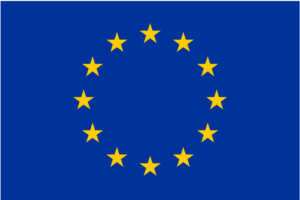Project Overview
How can we turn Europe’s building stock into healthy and affordable homes for all?
HouseInc will investigate the economic, social and ecological drivers and effects of housing inequality to derive and co-design high-quality policy recommendations for local, regional and national policymakers to foster the adoption of effective and innovative measures to address current housing inequality in Europe.
HouseInc will explore:
- The drivers of housing inequality and their interaction with related issues: energy and mobility poverty, digital dimensions, employment opportunities, family conditions and health.
- Assess the impacts at geographical scale by examining the urban/local and local/regional vs national conditions and will investigate how proximity or distance to work, energy, transport and health infrastructure and services impacts the different dimensions of housing inequalities.
By providing a complete understanding of the drivers and effects of the various interlinking dimensions of housing inequality and translating them into policy recommendations and adaptable solutions to housing inequalities, HouseInc will help to mitigate the impacts of income and wealth polarization. The project will prioritize marginalized and vulnerable groups in its research, with diversity dimensions such as gender playing a crucial role in achieving a just energy transition and ensuring affordable, sustainable, and inclusive housing. Social justice is at the heart of HouseInc and the project will support the most vulnerable communities by identifying the systemic barriers to housing equality.
Beyond the 4 pilot countries, the project will also have a wider impact by directly contributing to at least 9 out of 17 Sustainable Development Goal (SDGS). The project ‘s holistic and systemic approach to understanding housing inequalities will help contribute to reducing inequalities and mitigating poverty, enhancing health and wellbeing, gender equality, providing good housing conditions and basic services (clean water, electricity), and the development of sustainable and inclusive cities and communities throughout Europe.
Key project outputs
- Policy recommendations to provide guidelines for policymakers.
- A multinational survey to better understand the impacts of Russia’s invasion of Ukraine and COVID 19 on housing inequality.
- Establish multistakeholder Living Labs to co-design solutions at local and regional levels.
Objectives
HouseInc has 6 main objectives:
- Apply a holistic and shared integrated methodological approach combining micro-meso-macro analysis to study interlinkages among dimensions of housing inequalities as well as socio-demographic characteristics of marginalised communities.
- Assess and help policymakers understand economic, social and ecological drivers of and related effects on housing inequalities and examine pathways and impacts of their interaction.
- Analyse and assess the effects of different types of tenure and policies on housing inequalities.
- Investigate the role of geographic scale and conceptualize proximity/distance regarding fragilities in dimensions of housing inequality.
- Map, co-design and scale-up social, economic and ecologic/digital solutions to housing inequalities in the context of marginalised communities.
- Derive, co-design and validate empirically based and high-quality policy recommendations to address interlinked dimensions of housing inequality on the local, regional and national level.
Core Countries
By taking a holistic approach, HouseInc will provide solutions that aim to relieve the burden of housing inequality in 4 marginalised communities in Europe (Roma communities (in Czech Republic and Romania) as well as Ukrainian refugees (in Italy) and migrants from Eastern Europe (in Germany). The selected case studies put a special focus on Eastern Europe and the impact of Russia’s invasion of the Ukraine.
The partners will conduct qualitative research in these pilots to identify drivers in marginalised communities and develop and categorise pathways of interlinkages.
Activities include interviews, analysing the policy framework, participatory focus groups with the case study communities to identify drivers and impacts of housing inequalities, and more.
Resources and Materials
Research papers
Brochures and other communication material
Reports
The following reports will be added as they become available. Please note they are still subject to the European Commission’s approval.
- D3.1 – Report on selection of datasets and indicators for selected countries, M12, ISAS
- D3.2 – Report on drivers of financial levels of housing inequality, M24, ISAS
- D3.3 – Meta-study on effects of housing policies, M12, DIW
- D3.4 – Multinational database of housing market regulations DATA -not report
- D3.5 – Report on impact of wealth and income inequality on housing markets, M27, ISAS
- D4.1 – Effects of energy poverty incl. the analysis of the multinational survey, M24, imec
- D4.2 – Smart meter data model for identification of energy poverty, M12, UCL
- D4.3 – Report on impacts of wider housing Inequalities, M21, UCL
- D4.4 – Report on effects of climate change using the case of overheating, M28, UCL
- D5.9 – Interlinkages of housing inequalities: Findings from the case studies, M16, ISI
- D5.10 – Database on housing inequalities in the case studies (incl. infographics), DATA & infog, M33, UNIBO
- D5.11 – Capacity-building toolkit for addressing housing inequalities, M24, UNIBO
- D6.1 – Atlas of existing solutions addressing housing inequalities, M17, BOCCONI
- D6.2 – Report on Living Labs solutions for addressing housing inequalities, M27, UNIBO
- D6.3 – Roadmap to scaling-up identified solutions, incl. at least 10 factsheets, M29, BOCCONI
- D7.1 – Synthesis of project results and first draft of policy recommendations, M27, EPG
- D7.2 – Country snapshot reports, M29, EPG
- D7.3 – 2nd draft of policy recommendations, M31, EPG
- D7.4 – Set of policy briefs, M36, EPG
- D8.1 – Communication, Dissemination and Exploitation Plan (CDEP, Version 1), M3
- D8.2 – Communication, Dissemination and Exploitation Plan (CDEP, Version 2), M18
- D8.3 – Communication, Dissemination and Exploitation Plan (CDEP, final), M30
- D8.6 – Report on communication and dissemination activities (Version 1), M18
- D8.7 – Report on communication and dissemination activities (final), M36
Contacts
Project coordinator
Dr. Anne Kantel, Fraunhofer-Institut für System- und Innovationsforschung ISI, [email protected]
Communication Lead
Marine Faber Perrio, IEECP, [email protected]


















